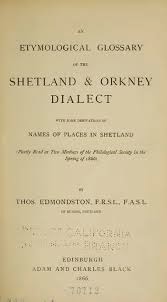 |
| Do you suffer from foreign language anxiety? You are not alone! |
Most language learners I have known raise their hands when this question is put to them: How many of you want someone to tell you when you make a mistake in your new language? "Sure," most people will respond with looks on their faces that say, "Any more dumb questions?"
The common sense logic of error correction goes something like this. If I am learning a new language, I will naturally make lots of mistakes. If someone will just let me know when I make a mistake, I'll correct it, and then eventually I'll speak my new language perfectly.
NOT!
Unfortunately, language learning isn't as straightforward as all that. Let's delve deeper into the topic of "error correction," which by the way is a controversial topic in second language acquisition.
Imagine that you are trying to express a thought aloud in your new language. Your brain is working overtime to put together new sounds, new words, and new structures in a timely manner. If someone corrects your language while you are speaking, the interruption usually has undesirable effects rather than the helpful effects probably intended. (We'll give the benefit of the doubt to people who correct others' language, assuming they are not just demonstrating their superiority!)
Being corrected while you are delivering language to the world is no fun, even for those of us with the toughest egos. Language learning anxiety may set in.
 |
| Do you ever feel like this learning a new language? |
Even if you feel you are tough enough to take a correction because you really want to learn this new language, this is the thing: The correction will most likely be of no future use to you because your brain is creating what YOU want to say, not what someone else wants to say. And even if you repeat a corrected pronunciation, or a word choice, or a grammar point, you will probably be merely parroting back the correction. In order for the correction to be of any help to you in the future, you need to process that information in your own brain on your own terms.
 |
| Your brain at work |
For example, let's say that you are learning Spanish, and you want to express the sentence "I live in Texas." A common mistake for a beginning learner is to fail to conjugate the verb correctly (put the right ending on the verb) and say "*Yo vive (instead of the correct vivo) en Tejas."
How horrible is this error, after all? The listener can still understand that the learner is saying "I live" because yo means "I." A correction or (heaven forbid!) an explanation of the concept of verb paradigms in Spanish would not be helpful here. You may lose focus of the meaning you are trying to communicate. You may also feel confused or guilty because your verb endings aren't correct yet.
So, how do we ever start putting the correct endings on verbs that refer to "I"? It happens when we hear enough examples of matching "yo" with an "o" on the end of the verb, that the correction is made in our own minds. "Oh," we may say internally, "I must be saying that verb wrong, because everyone else puts an "o" where I have been putting an "e." Self-correction is more gentle and, much more importantly, more lasting than correction by someone else.
I can imagine a reader's mind whirling at this point. processing the idea that self-correction is better than external correction. "What if I say something that I didn't realize was really objectionable in the new language?"
 |
| Have you ever put your foot in your mouth? |
I might want to be corrected in this case! But I'm still going to keep making one request of my conversation partners when I am learning new languages, "If you truly want to help me, please don't correct my errors!"













































